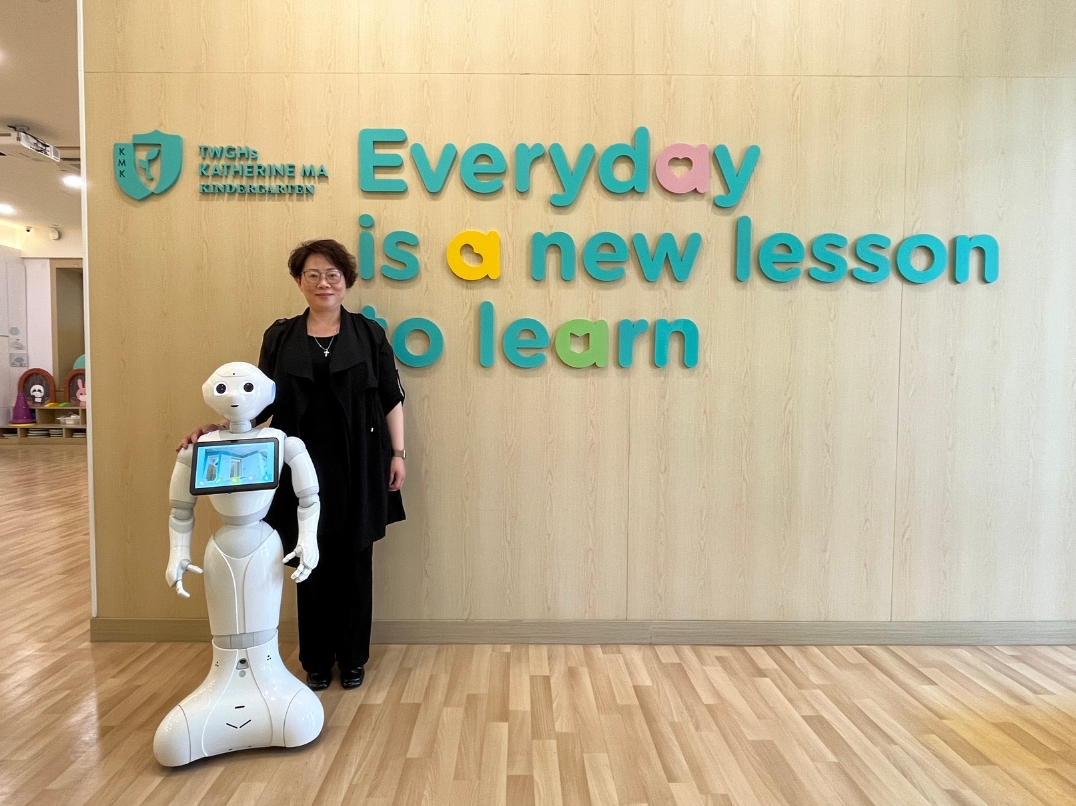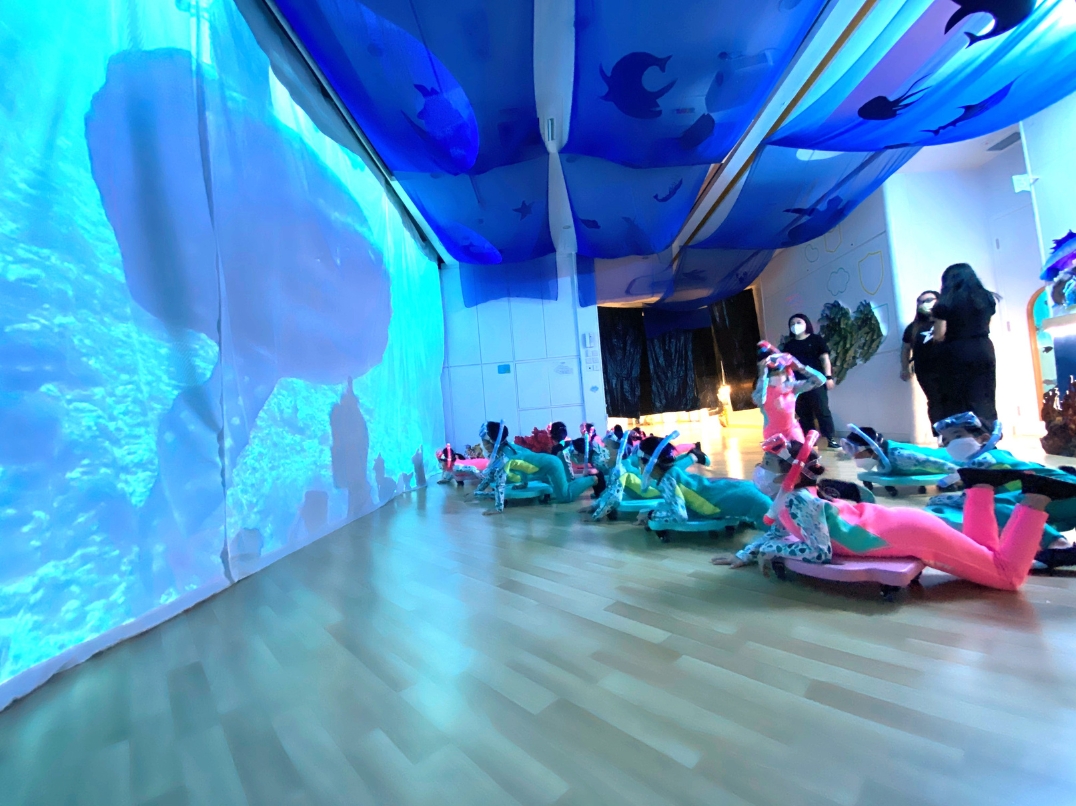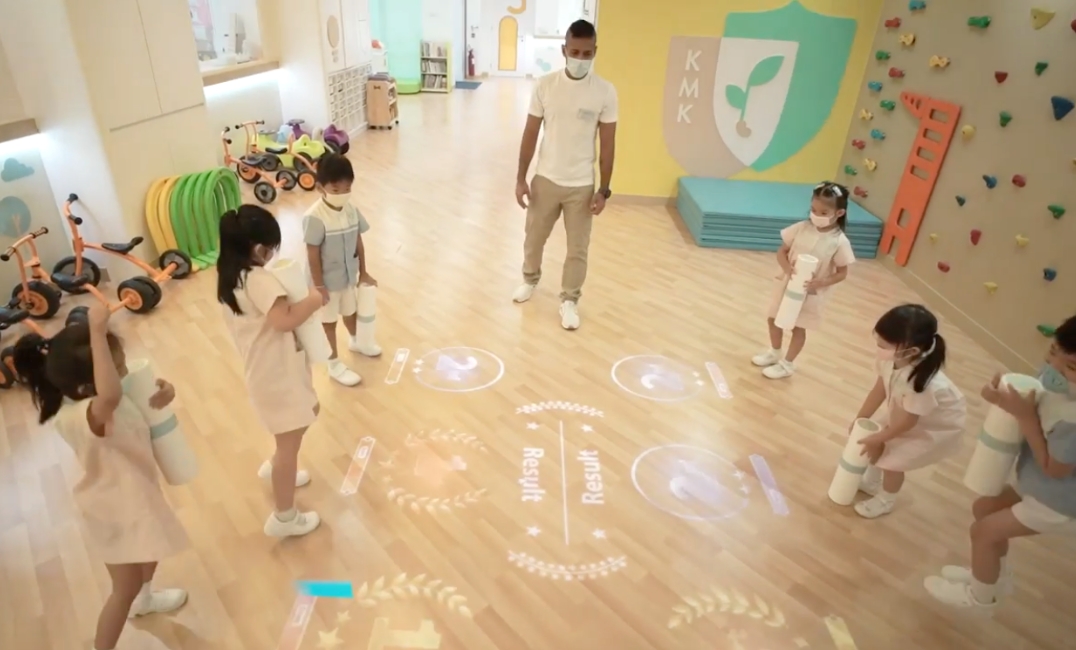Technology-assisted Learning and Teaching: Enhancing Young Children's Learning Effectiveness
In response to the fast-changing information technology development in society, the education sector has been actively incorporating technology into teaching to cultivate information technology talents. Early childhood education is no exception. Many local kindergartens have applied technology to learning and teaching, and TWGHs Katherine Ma Kindergarten has combined technology with traditional teaching methods to create a more enjoyable and efficient learning experience for young children.
Utilising Technology to Achieve Immersive Learning
Principal Lo Lai Wan emphasises the importance of sensory experience in young children's learning. The kindergarten's teachers have been using physical settings and simulated activities to allow children to experience different scenarios and learn knowledge and skills, and technology can significantly enhance the effectiveness of the entire teaching experience.
Teachers use technology to break geographical barriers and design ‘off-campus field trips’ for young children, exploring the African safaris of Tanzania and the underwater world of the Kingdom of Tonga in the South Pacific. By using projection technology to create a colourful underwater world in the classroom and having children wear diving suits and use balance boards for sensory training, they start a journey into the depths of the sea under the guidance of professional divers.

With the help of video and sound effects, children can explore the marine ecology as if they were under the water to search for different creatures, including humpback whales, triggerfish, sea turtles, jellyfish, to learn about their daily life and to understand the crisis of ocean pollution which the species are facing. This immersive learning experience greatly enhances children's learning motivation and engagement, and strengthens teaching effectiveness.
Diversified Technology Support Enhances Teaching Flexibility
Principal Lo stated that teachers use various technology support to make teaching more flexible and achieve different teaching objectives. To enhance classroom interaction and collaboration among young children, teachers use electronic whiteboards to design teaching
content for different learning areas, such as number games, life quizzes, and word puzzles, allowing young children to solve problems together. Interactive floors are used for physical activities, such as dancing and action games. Young children enjoy learning while playing with interactive technology, becoming more active in participating in class with their peers and growing together.
The pandemic has made teachers realise the importance of enabling young children to continue learning at home. Therefore, they have transformed picture books into animations for young children to watch at home. They also encourage young children to use electronic learning pens to practise language listening and pronunciation at home, with content recorded by the kindergarten’s native-speaking English teachers to keep pace with the school curriculum.
In addition, teachers also use technology to meet young children's learning needs, such as learning robots, providing social developmental support for more timid children, and offering a fun and relaxing way for them to learn and practise social skills to relieve emotions and stress effectively

Close Communication with Parents Enhances Parental Confidence
Regarding parental concerns about technology-assisted teaching, Principal Lo believes that the kindergarten's practices in this regard must be transparent and that they must maintain close contact with parents to let them understand specific strategies and their application in daily teaching, thereby building confidence in the teaching approach.
We must first make parents understand that technology is only used to assist teaching instead of allowing young children to play games on tablets all day,’ added Principal Lo. The kindergarten arranges class observations for parents to understand the lessons in person. Parents may grasp the learning progress of their children by means of learning evaluation forms from the school. During parents’ day and daily communication, teachers will follow up closely on young children's learning progress with parents to provide appropriate support.
Support from the School Sponsoring Body Allows Technological Flexibility
The Tung Wah Group of Hospitals (TWGHs) provides sufficient support to its affiliated kindergartens, allocating funds to support the purchase of various innovative teaching aids for the integration of technology into teaching, such as electronic whiteboards and the subsequent introduction of the ‘Wonderful and Colourful Station’ electronic screen learning device. Kindergartens under TWGHs also form networks to share technology resources and hold regular teacher training and peer observation activities. These kindergartens exchange progress in promoting technology-assisted teaching, continuously study and optimise existing equipment inventory, and explore the applications in different learning areas.

